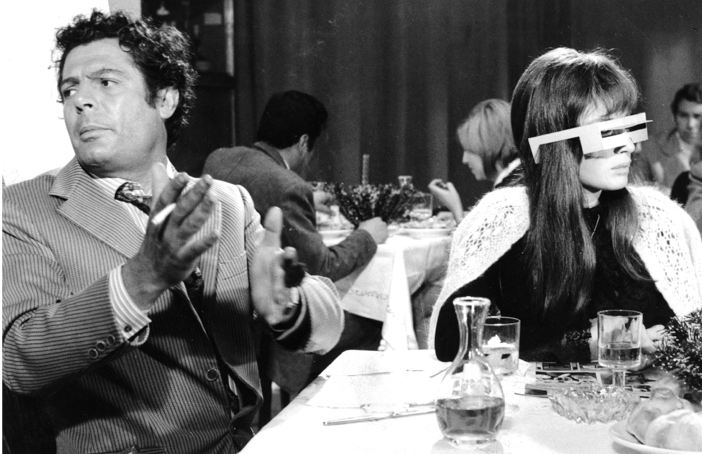Common Pitfalls to Avoid When Learning Italian as a Foreigner
I adore foreign languages. It always baffles me when people say, “Ah but they all speak English over there.” Sure, you can make yourself ‘understood’ in most countries these days. But speaking the local tongue is the only way to truly understand the heart and mentality of a culture. Your relationships will be richer. You’re less likely to be ripped off. You’re more likely to fall in love. You’re certain to earn their respect. I still make so many mistakes but here are some of the errors I hear often or used to make myself when I first arrived in Italy.
That makes sense, or does it?
I’ve often heard irate foreigners shouting at an Italian ‘non fa senso’! I can tell they’re directly translating in their head from the English ‘it doesn’t make sense’. It’s worth looking up ubiquitous phrases like this because they don’t always use the same verb as us. In Italian they say literally ‘it doesn’t have sense’ – ‘non ha senso’. And if you’ve spent any time as an expat in Italy then you know you’ll be needing this phrase a lot!
The context in which Italians use ‘make’ when we would not is when talking about offers or invites and how much trouble something ‘makes’ or doesn’t make for them. It doesn’t come naturally to an English speaker, but the usual response when being asked how you feel about doing something is that ‘ti fa piacere’ (it brings you pleasure to do it) or literally ‘it makes pleasure to me’. So when you’re completely lost with a dripping gelato in your hand and you stop a kind stranger to ask for directions and drip gelato over his suede loafers, he might say ‘non fa niente’ (literally ‘it makes nothing’ but meaning ‘no big deal’) followed by ‘mi fa piacere aiutarti’ (literally ‘it makes pleasure for me helping you’ but meaning ‘I’m happy to help you’).
But enough about you, let’s talk about me
The word ‘piacere’ needs to be understood in order to be polite, give compliments or handle the complicated business of falling in love in Italian. It’s fundamental. It is so foreign to us because we think, perhaps egocentrically, that WE are the subject of every conversation. I like that. I miss you. I would like to go there. I, I, I! How many lovelorn tourists have texted their Italian holiday flings with ‘io ti manco’, which seems like ‘I miss you’, but is actually the opposite – you miss me. No wonder they think Anglo-saxons are forward. 😉
I suggest always thinking that the emotion is happening TO you. For example, ‘I like you’ is ‘mi piaci’, or as I think of it, ‘you are pleasing to me’. Similarly, ‘I miss you’ is ‘mi manchi’, or ‘you are missing to me’. Personally this sums up my reaction to most things in Italy. I often feel like they happen ‘to me’, like a wave curling up crashing down over me, soaking me completely and leaving me standing on the shore with no control over my emotions.
Wipe that smile off your face! You’re not happy, you’re content
What a whimsical word ‘felice’ is. It sounds like pastel-coloured confetti might burst out of your mouth as you say it. We throw around the word ‘happy’ with such frequency in English and that is indeed the definition of ‘felice’ in Italian, however, in all my time living in Italy I’ve got to say I don’t hear ‘felice’ used as often as ‘sto bene’ or ‘sono contento’ (male) or ‘sono contenta’ (female). When you’re so euphoric to be in this beautiful country and emotion smacks you in the face at every turn, you’re going to feel that a response that sounds like it borders on ho-hum complacency or some buddhist ‘I am content sitting on a rock’ statement is hardly adequate to describe your level of joy. But it is. That’s not to say Italians don’t use ‘felice’ but in my experience I’ve certainly heard them use ‘stare bene’ and ‘essere contento’ more and upgrade it to ‘sto benissimo’ or ‘sono contentissimo’ for times of elevated happiness.
How does it go? It goes.
If you’re being invited out you might hear the casual question of ‘ti va?’ This comes from the verb ‘andare’ (to go) and it’s a great way to ask someone out while still being super cool and nonchalant. Don’t go all phrasebook on them with ‘vuoi venire con me alla spiaggia’ (do you want to come with me to the beach) when you could say the more colloquial ‘are you up for going to the beach’, which is ‘ti va di andare al mare?’ Oh, that’s another one. No one calls it the ‘beach’ here. You go to the ‘sea’.
You’re rude and too polite at the same time
I used to feel that I had to only use the conditional when ordering in Italy. Could you bring me… Could I have… Actually, the more I listen to Italians, the more I realise that they often use the present tense, which literally translates as ‘You bring me the menu. You make me a coffee.’ ‘Scusa, mi porti il menu’? Scusi, mi fa un caffe’?’ To my ears this used to sound so impolite. However, depending on the tone or if you use the Lei or the formal Italian and be sure to add a little ‘per favore’ at the end, it’s not rude at all.
Oh and while we’re on the subject of ‘per favore’… so many friends come to visit me and when buying things from locals or in a restaurant they start busting out ‘gracias’ and ‘por favor’. Expats don’t tend to go all Spanish but it’s something I hear from tourists all the time. When you’re pronouncing the Italian ‘per’, don’t let it become like a pussycat’s ‘purr’; it’s more like the way we pronounce the fruit ‘pear’ with a nice Latin rolling of the ‘r’ at the end. So when you’re being polite, think fruit not pussycat. 😉 As for ‘grazie’, the ‘ie’ at the end is almost imperceptible – focus on the ‘gra’. It should come out like two syllables, whereas foreigners tend to turn it into three: gra-zi-e. It should sound more like ‘graaaaaaaaah-tsyeh’.
Of course, Italians will forgive your errors and you need to make mistakes in order to test out your new phrases and gain confidence with the pronunciation. But it does help to stop and listen every now and then. I’ve come across expats who have been living in Italy for 20 years and are still making these mistakes because they just translate straight from English rather than pausing to absorb just how locals string together this bellissima lingua.







I’ve been in Italy six months (I’m around intermediate level) and the “ti manco” thing always puzzled me! I’d love to see more language posts, maybe about how you learnt the language from the beginning…
Thanks for letting me know. I’d gladly share more language posts as it’s one of the elements of living in Italy that I feel most passionate about. People often say to me “how did you end up doing THAT… or how did you meet THOSE people?” and I have to say that most beautiful experiences I’ve had in Italy have been thanks to the language.
Reading you, dear friends, make me feel a bit of pride to be Italian.
I’d be happy to respond, in the way that my poor English will allow me, to your any questions about my country, my language and my culture.
Ciao a tutti.
I came across Romeing in the magazine form for the first time 3 years ago at Dilit, where I came to study Italian. I’ve been coming back ever since, got my C2 last December and now split my time between the UK and Rome. I still read Romeing and keep back copies handy for visiting friends and family. The ‘fa senso’ is the one and only correction we always felt was OK to make at school – because it means ‘it makes me sick’ and that’s not a mistake you want to be making. The use of the present tense in polite requests, I was explained, is the formulating the request as a question. It’s the implied uncertainty, the question, that makes it a polite request and not an order. ‘will you bring me a coffee?’ x ‘bring me a coffee’. One useful thing to keep in mind is the way Romans understand time and words like dopo, un’oretta etc. Ci sentiamo dopo/domani/fra un po’… But that would make for a whole new article for Romeing. And a special thank you for your article about dating that you ran about 3 years ago. All our teachers confirmed it was spot on and it saved us a lot of heartache and confusion.